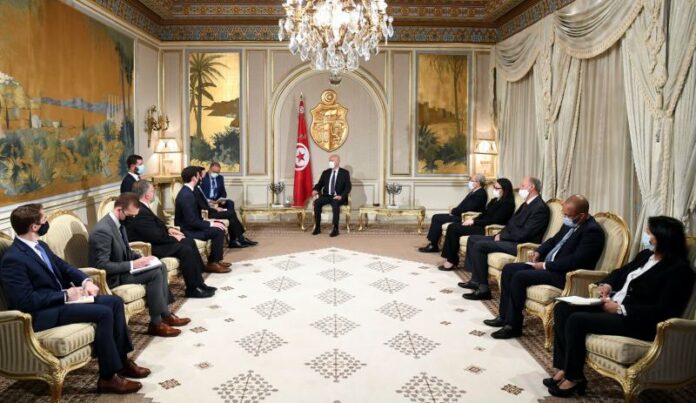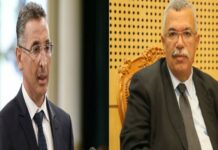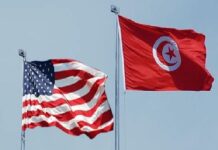The visits of American officials are absolutely important, regardless of their dates and the composition of their delegations, and regardless of the hours, days, and meetings they arrange with Tunisians, whether in power or in the opposition. It is the world’s number one superpower, and there is no doubt about this, for sure. Yet the importance, suspense and expectations increase and change according to the historical moments in which the visits are accomplished. The special interest of the United States is in the first place, and the common interest is in a second degree, and these are the provisions of international relations.
It is therefore a normal visit, despite the high expectations and the inflated readings. The parliamentary delegation came after the visit of a high-level US delegation headed by Assistant National Security Adviser Jonathan Viner on August 13, carrying a written message from US President Joe Biden to President Kais Saied.
At that time, the delegation affirmed that the US president is personally following up on the development of the situation in Tunisia and has full respect for our country and its president, and that the US administration knows the size and quality of the challenges we are facing, especially the economic and health challenges.
The Assistant National Security Adviser adds that the United States is committed to its strategic friendship with Tunisia, supports the democratic path in it, and looks forward to the next steps that the President of the Republic will take at the governmental and political levels.
During the meeting, the Tunisian president stated that the exceptional measures he took fall within the framework of implementing the constitution and respond to a broad popular will, especially in light of the political, economic and social crises and the rampant corruption and bribery in the country, and considered this an inevitable danger.
It is also remarkable that the American side revealed what the Presidency of the Republic did not refer to in relation to “drawing broad lines for a quick return to the democratic path in Tunisia.”
National Security Adviser Sullivan stressed that this would require the rapid formation of a new government led by an able prime minister, in order to stabilize the Tunisian economy and confront the Covid-19 pandemic, in addition to ensuring the timely return of the elected parliament along with Tunisia’s leaders responding to the demands of Tunisians i.e. improving living standards and achieving good governance.
If the Americans saw that America’s interest is in describing what happened on July 25, 2021 as a coup, they would not be late in that, so it is clear that they did not seem interested in this description of the measures taken by Kais Saied, and hence this is what motivated President Saied to interact with the Americans and move forward with the implementation of his project.
Another strong message that the President presented to the Congressional delegation was to emphasize the strength of the two countries’ relationship. It is a fixed strategic relationship, not a passing one, governed by the common interest, stability in the two countries and the well-being of the two peoples.
As a teacher specialized in constitutional law, Kais Saied did not get rid of his university past and went on to review the characteristics of the American Constitution.
Finally, it is worth noting that for the first time, the president used the phrase the roadmap, which he had rejected. He assured the Americans that he approached the zero hour, as it is said, “and very soon the map is clear and the path is clear, and we will pass in the nearest time to the measures that the people have paved their way.”











